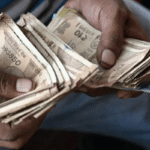ISLAMABAD: The Pakistan Muslim League-Nawaz (PML-N) is getting ready to unveil its much anticipated manifesto for the upcoming elections on Saturday, January 27, which is set for February 8. The manifesto calls for significant constitutional, judicial, legal, and governance reforms, stating that these “critical and urgent” changes were required to support the nation’s advancement and give the parliament more authority.
Important party insiders, speaking anonymously, acknowledged that the party has drawn criticism across the nation for its remarkably slow canvassing campaign launch and for keeping the manifesto out of the public eye for far too long. However, they said that the promises made in the manifesto would not let down rival political parties or the Pakistani people, who were eager to see significant changes in the way “our country” was run.
They say that in order to “set many an issue straight that have been a bane for national politics and effective administration,” their party’s manifesto intends to take significant actions in collaboration with all political groups inside the new parliament.
To recapture the genuine democratic essence of the Constitution, as intended by its authors, the PML-N platform pledged to “abolish the caretaker governments” and eliminate “certain validations and footnotes using the method adopted in the 18th Amendment.” Also, in order to restore the original definition of the parliament, the manifesto would commit to remove the president from being “a part of the parliament.
”In the process of consulting to draft a comprehensive text, the party leadership concluded that some constitutional amendments were deliberately added by the autocratic governments to reduce the effectiveness and influence of popular representation. Consequently, the manifesto would pledge that Articles 62 and 63 must be changed or put back in their original places. We will clarify Article 63 A. To keep an eye on lawmakers’ behavior, the Parliament will establish an Ethics Committee. The corresponding Provincial Public Service Commissions will appoint members of the lower judiciary. The ability to appeal disciplinary actions taken against members of the lower judiciary. Stronger provisions pertaining to local governments, such as increased financial and administrative authority and tenure protection.
Aware that the party might not be able to fulfill any of these commitments absent a concerted effort by all political forces, the manifesto would seek to work with Pakistan’s Law and Justice Commission, Provincial Justice Committees, and Superior Courts to implement changes that would improve the legal system as a whole. The PML-N seeks to “legislate to ensure that no case is continuously leftover or not heard for a period exceeding a maximum of two months and limit adjudication time to one year, especially for cases affecting the life of a common citizen” in order to guarantee that an effective legal system would provide litigants with speedy justice.
In addition to pledging a contemporary criminal justice system that includes training opportunities for judges, executive magistrates, investigating officers, and public prosecutors, translating all laws into Urdu to increase public awareness, and promoting Alternative Dispute Resolution (ADR) mechanisms at the district level, the manifesto mentions legal amendments to streamline procedures and guarantee convenient access to courts as well as changes to the law to reduce frivolous litigation.
A merit-based system at all levels of the Civil Service would be established as part of the manifesto, along with enhancements to training, incentives, postings, recruiting, and promotion processes. In addition to providing more compensation for technical specialists, it would increase the upper age limit for applicants to civil service exams from 28 to 30 years old.
Additionally, the pact would guarantee local governments more administrative and political authority. The manifesto would commit to transferring Primary Health (Basic Health Unit), Primary Education (Primary and Middle Schools), Social Welfare, Family Planning, Sports, Transportation, Child Protection, Public Health, Disaster Management, Rescue Services, Tourism, and Environment to local government level, in addition to requiring youth representation at every level of local government.
In order to give citizens more power, the manifesto also pledges to alter the Constitution. The suggested revisions would primarily focus on strengthening the right to education. The right to healthcare will also include the right to adequate sanitation and clean water. The right to seek justice must be acknowledged. The right to effective governance will be recognized. Presenting the Panchayat System, a different approach to resolving disputes.







